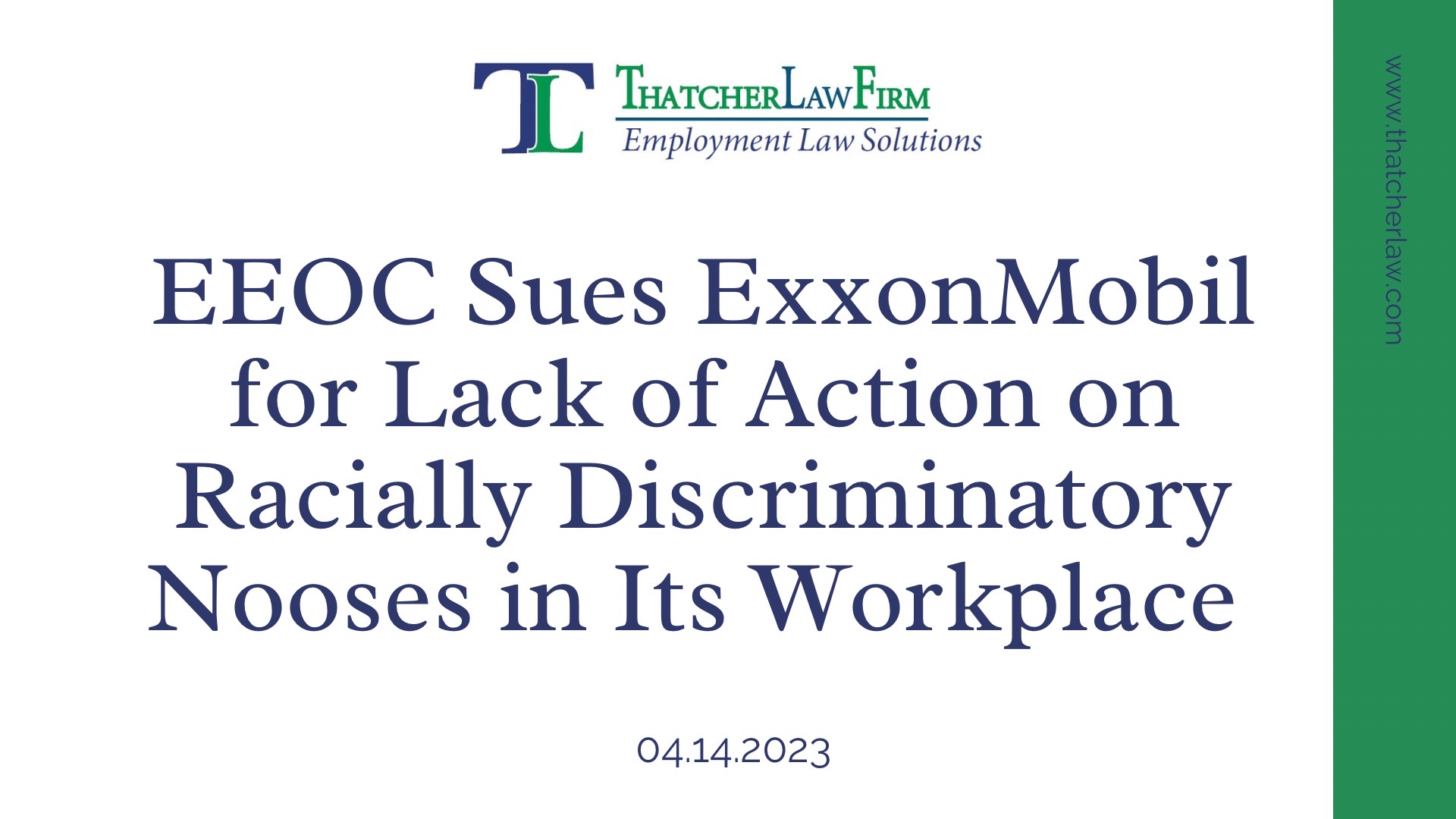In January 2020, a Black employee at an ExxonMobil chemical plant in Louisiana reported finding a hangman’s noose at his workstation. It was, at the time, the fourth time a noose had been found at the plant. A fifth noose was found that December.
According to the Equal Employment Opportunity Commission (EEOC), ExxonMobil didn’t take proper precautionary or disciplinary measures regarding this heinous form of racial harassment and discrimination. The extent of this harassment was sufficient enough to create a racially hostile work environment.
“A noose is a longstanding symbol of violence associated with the lynching of African Americans,” said the EEOC on a statement. “Such symbols are inherently threatening and significantly alter the workplace environment for Black Americans.”
The EEOC alleges that ExxonMobil only investigated a small portion of the noose incidents. Moreover, they failed to take “measures reasonably calculated to end the harassment.”
ExxonMobil disagreed with the EEOC’s allegations in an interview with NBC News in which their spokesperson said, “We encourage employees to report claims like this, and we thoroughly investigated…The symbols of hate are unacceptable, offensive, and in violation of our corporate policies.”
What are employers required to do when they learn of harassment?
Long before you learn of any harassment, you should put policies in place to prevent racial or other forms of harassment. Your policies should make it clear that employees should speak up about harassment and will not face retaliation.
Once you hear of an incident of harassment, take it very seriously. The law requires you to investigate the situation promptly and to quickly take reasonable steps to address the situation. Even if you ultimately find that nothing happened, you must not retaliate against the employee (ex. demotions, pay cuts, or termination). If you learn that something happened that violates your anti-harassment or discrimination policies, take reasonable steps to retrain, discipline, or terminate the responsible employee.
If you have questions about how to avoid or respond to racial harassment at your workplace, contact Thatcher Law Firm at 301-850-1246. www.ThatcherLaw.com. Follow us on:

